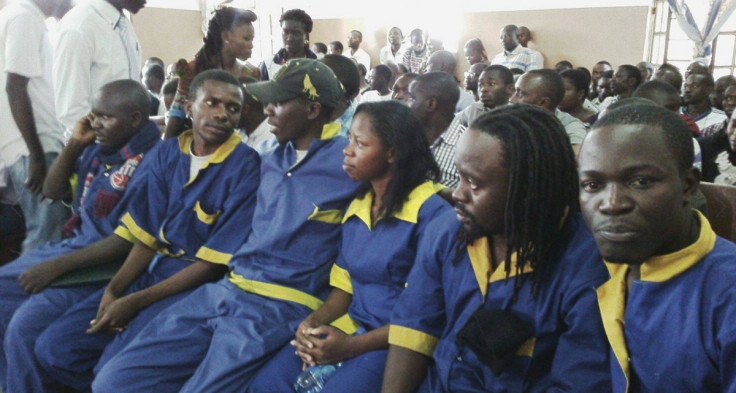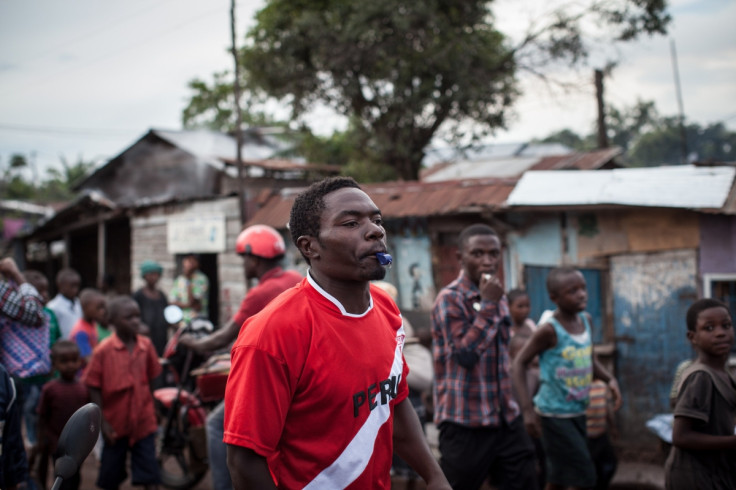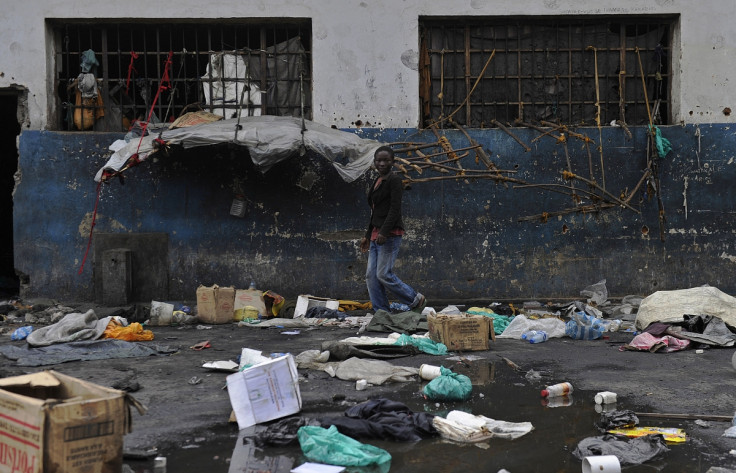Law and disorder in DRC: Inside the secret trial of Congo's political activists

The trial of six activists arrested in the Democratic Republic of Congo (DRC) on 16 February has been brought forward by Congolese authorities. Civil society groups have called this a "deliberate attempt to judge the activists in secret" and a "violation of the rights of defence".
The activists were arrested on 16 February as the country's main cities were paralysed by a general strike called by a coalition of opposition parties and civil society groups, including the LUCHA (Lutte pour le changement, or Struggle for change) movement. The arrests came just hours before the victorious 'Leopards' national football team was to return with the Chan Cup (African Nations Championship).
The six LUCHA activists, who were detained in Goma in North Kivu ahead of the strike, appeared in court for the third time on Monday (22 February) amid an escalating government crackdown on dissenting voices. The government describes LUCHA as an insurrectionist movement.
Defence: 'Prosecution fabricated false evidence'
At the bar, the officer of the judicial police in charge of the investigation referred to "subversive banners" found at the scene of the arrest. The officer also detailed an anonymous informant who denounced the six young people and qualified them as "criminals" because they would have made "noise".
During the hearing, defence lawyers alleged the accused had not been arrested as part of a judicial winding-up procedure, since the officers of judicial police (OPJ) had entered their plot without a formal search warrant at 04:00.
Luc Malembe, an activist of LUCHA who was present during the lawyers' arguments, said the young people were "abducted during the night" on the orders of "political authorities who have become paranoiac".

Defence lawyers outlined how police officers had climbed a wall, broken down doors, and "beaten and tied up" the activists before stripping them of their belongings including mobile phones and money. Lawyers claimed police and the prosecution had "tried to fabricate false evidence against our comrades with the sole purpose of having them convicted".
It appears that police considered the content of messages that the group had written on banners for the attention of their winning football team as seditious. One of the messages read: "Where there is a will, there is a way. 2016, We won the cup. 2016, We will win the fight for democracy."
"For the prosecution, this message is subversive; it constitutes 'incitement to revolt against the authorities.' That is our real crime: speak out and mobilize our fellow citizens to respect democracy. We need the whole world to know that," Malembe added.
The court rejected defence lawyers's demands to bring in new witnesses and claimed to have enough evidence to proceed with closing arguments and pleadings.
A 'serious violation of the right of defence'
Monday's hearing was attended by journalists, diplomats, representative of human rights organisations, and Monusco, a presence Malembe believes "helps deter judges from yielding to the enormous political pressure that the authorities are putting on them."
24 February's new hearing was initially set for 12pm local time (10.00am GMT), but LUCHA was told at the last minute that the deliberation had been brought forward to 8am local time. According to Malembe, the court's decision is a "violation of the rights of defence", and the organisation had been notified that the defendants had already been taken to the High Court.
"We are extremely outraged by the court's practice (as) the change is in contradiction with the pleadings scheduled this Wednesday, 24 February, from 12.00pm. Those who were present are all witnesses. We do not understand this decision to advance the time," Malembe said.
"We believe that the court will simply judge our comrades in secret, without the annoying presence of the media, diplomats, friends, families, and maybe even [their] lawyers. This is a serious violation of the right of defence."
LUCHA and the defendants' lawyers have called for the acquittal of the six activists, in light of the "false evidence" presented by the prosecution. "For us – and the law – the damage is done. There is a serious doubt throughout this procedure from the time the prosecution presented false evidence against the accused. And the consequence in law is acquittal," Malembe explained.

UN: Need for 'independent justice'
José Maria Aranaz, the head of the UN Human Rights Joint Office stated that "this trial is another opportunity for the Congolese judiciary to assert its independence and uphold constitutional rights." He added that an independent justice to guarantee these rights is the last defence to protect citizens from abuse of power and intimidation.
Powerful opposition figure Moise Katumbi has in the past tweeted about his desire to have an independent justice in the DRC. "I would like to reiterate my support for all political prisoners in #RDC. Courage to them, the rule of law will prevail," Katumbi wrote in a Tweet this month.
J'en profite pour redire mon soutien à tous les prisonniers politiques en #RDC. Courage à eux, l'Etat de droit finira par l'emporter.
— Moise Katumbi (@moise_katumbi) February 14, 2016
Tensions have been rising in the DRC, ahead of elections scheduled later this year. Although President Joseph Kabila is bound by the constitution to step down in December 2016 as he has served two consecutive terms since 2001, opposition groups have accused him of trying to postpone the November 2016 election and amend term limits.
Since January 2015, opposition parties have called for mass protests against changes to the nation's Constitution that would enable Kabila to extend his rule.
© Copyright IBTimes 2025. All rights reserved.






















